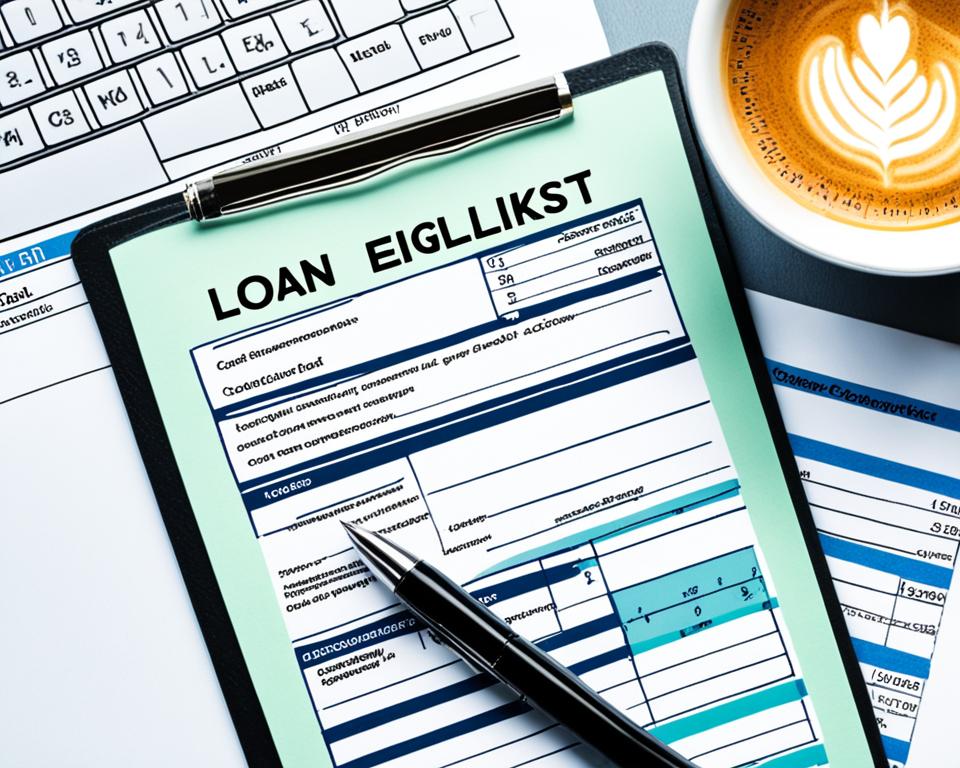Five Common Home Buying Mistakes to Avoid at All Costs
Are you planning to buy a new home? It’s easy to get caught up in the excitement of house hunting, but it’s important to approach the process with caution.
Making mistakes during the home buying process can lead to costly and regrettable decisions. In this article, we will highlight five common home buying mistakes that you should avoid at all costs. Whether you’re a first-time homebuyer or an experienced buyer, these tips will help you navigate the real estate market with confidence.
One of the biggest mistakes potential homebuyers make is not setting a realistic budget. It’s essential to determine how much house you can afford and stick to that budget to avoid getting in over your head financially. Additionally, failing to research the neighborhood thoroughly can lead to undesirable surprises after moving in.
Another common mistake is rushing into a decision without conducting a thorough inspection of the property. Finally, overlooking future resale value and not considering long-term goals can limit your options when it’s time to sell.
By avoiding these home buying mistakes, you can ensure a smooth and successful purchasing process. So, let’s delve into each of these mistakes and learn how to make the right decisions when buying a home.
Mistake #1: Not getting pre-approved for a mortgage
One of the biggest mistakes potential homebuyers make is not setting a realistic budget. It’s essential to determine how much house you can afford and stick to that budget to avoid getting in over your head financially. This starts with getting pre-approved for a mortgage.
Getting pre-approved for a mortgage is crucial because it gives you a clear understanding of how much money you can borrow from the bank. It helps you set a realistic budget for your home purchase and narrows down your options. Additionally, being pre-approved for a mortgage allows you to act quickly when you find the right home, as sellers are more likely to consider offers from pre-approved buyers.
To get pre-approved for a mortgage, you’ll need to gather your financial documents, such as pay stubs, tax returns, and bank statements. You’ll also need to provide information about your employment history and credit score. Once you have all the necessary documents, you can approach a mortgage lender or use online tools to get pre-approved.
Remember, getting pre-approved for a mortgage is not the same as getting pre-qualified. Pre-qualification is a less formal process that gives you an estimate of how much you might be able to borrow. Pre-approval, on the other hand, is a more thorough evaluation of your financial situation and provides a concrete loan amount. By getting pre-approved for a mortgage, you’ll have a better understanding of your financial capabilities and avoid the mistake of overspending on a home.
Mistake #2: Failing to hire a qualified real estate agent
Navigating the real estate market can be overwhelming, especially if you’re a first-time homebuyer. Many buyers make the mistake of trying to go it alone, thinking they can save money by not hiring a real estate agent. However, this can be a costly mistake in the long run.
A qualified real estate agent is an invaluable resource when it comes to buying a home. They have in-depth knowledge of the local market, access to listings, and negotiation skills that can benefit you throughout the buying process. They can help you find properties that meet your criteria, schedule showings, and guide you through the paperwork.
When hiring a real estate agent, it’s crucial to do your research and choose someone who is experienced and trustworthy. Look for agents who have a proven track record in the area where you want to buy. Ask for recommendations from friends, family, or colleagues who have recently bought a home. Interview multiple agents to find someone who understands your needs and has good communication skills.
Remember, the seller typically pays the real estate agent’s commission, so there’s no financial disadvantage to hiring one. In fact, having a knowledgeable professional on your side can save you money by helping you negotiate a better price and avoid costly mistakes.
Mistake #3: Not conducting a thorough home inspection
Another common mistake made by homebuyers is rushing into a decision without conducting a thorough inspection of the property. It’s essential to have a professional home inspector evaluate the condition of the house before finalizing the purchase.
A home inspection involves a detailed examination of the property’s structure, systems, and overall condition. The inspector will identify any existing or potential issues, such as plumbing or electrical problems, foundation issues, or signs of mold or pests. This information is crucial in determining whether the home is a wise investment or a potential money pit.
During the inspection, it’s a good idea to accompany the inspector and ask questions about any concerns you may have. This will give you a better understanding of the condition of the home and what repairs or maintenance may be needed in the future. Remember, a thorough home inspection provides you with valuable information that can help you negotiate the price or request repairs before closing the deal.
It’s important to note that a home inspection is different from an appraisal. While an appraisal determines the fair market value of the property, a home inspection focuses on identifying any structural or mechanical issues. Both are essential steps in the home buying process and should not be overlooked.
Mistake #4: Overlooking the importance of location
When buying a home, it’s easy to get caught up in the features and aesthetics of the property itself and overlook the importance of location. The neighborhood where a home is situated can have a significant impact on your quality of life and long-term satisfaction with the purchase.
Consider factors such as proximity to schools, parks, shopping centers, and your place of work. Think about the commute time and traffic patterns in the area. Research the crime rates and the overall safety of the neighborhood. It’s also a good idea to visit the area at different times of the day to get a feel for the atmosphere and noise levels.
Additionally, consider the future resale value of the home. Even if you don’t plan on selling anytime soon, life circumstances can change, and you may need to move in the future. Choosing a home in a desirable location can increase the likelihood of a quick and profitable sale down the line.
Take the time to thoroughly research the neighborhood and visit it in person before making a decision. Talk to current residents, read online reviews, and consult with your real estate agent to gather as much information as possible. By considering the location carefully, you can avoid the mistake of buying a home in an undesirable or inconvenient area.
Mistake #5: Ignoring the long-term costs of homeownership
Buying a home involves more than just the initial purchase price. Many homebuyers make the mistake of focusing solely on the mortgage payment and overlooking the long-term costs of homeownership. It’s essential to consider all the expenses associated with owning a home to avoid financial strain in the future.
Beyond the mortgage payment, homeownership comes with additional costs such as property taxes, homeowners insurance, maintenance and repairs, and utilities. It’s important to factor in these expenses when setting your budget and determining how much house you can afford.
Consider the age and condition of the property you’re interested in. Older homes may require more frequent repairs and maintenance, which can add up over time. Think about the potential for rising property taxes and insurance premiums. It’s also a good idea to budget for unexpected expenses, such as a new roof or a major appliance breakdown.
By taking the time to calculate the long-term costs of homeownership, you can avoid the mistake of buying a home that stretches your budget too thin. Being prepared for the ongoing expenses will ensure that you can comfortably afford your new home and maintain it properly.
How to avoid these home buying mistakes
Avoiding these home buying mistakes requires careful planning and research. Here are some additional tips to help you make the right decisions when buying a home:
1. Do your homework: Research the real estate market in your desired area, familiarize yourself with current prices, and stay informed about market trends.
2. Create a realistic budget: Determine how much you can comfortably afford, considering all the associated costs of homeownership, and stick to that budget.
3. Prioritize your needs: Make a list of your must-haves and deal-breakers, and focus on finding a home that meets your essential criteria.
4. Be patient: Don’t rush into a decision. Take your time to find the right property that fits your needs and budget.
5. Get professional advice: Consult with a mortgage lender, real estate agent, and home inspector to ensure you have all the information you need to make an informed decision.
Additional tips for a successful home buying experience
In addition to avoiding the common mistakes mentioned above, here are some additional tips to make your home buying experience a success:
1. Keep an open mind: Don’t be afraid to consider properties that may need some cosmetic updates or minor repairs. These homes often offer great value and potential for customization.
2. Consider future needs: Think about your long-term goals and whether the home you’re considering will accommodate them. Will it still meet your needs in five or ten years?
3. Don’t overlook the paperwork: Read and understand all the documents involved in the buying process, including contracts, disclosures, and warranties. If necessary, consult with a real estate attorney to ensure you’re protected.
4. Plan for contingencies: Have a backup plan in case your initial offer falls through or you encounter unexpected challenges. This can help reduce stress and keep you focused on finding the right home.
5. Take advantage of resources: There are numerous online tools and resources available to help you in your home buying journey. Use them to research neighborhoods, compare mortgage rates, and gather information about the buying process.
Resources for further research on home buying
If you’re looking for more information on home buying and want to dive deeper into the subject, here are some resources to explore:
– [National Association of Realtors](https://www.nar.realtor/): The official website of the National Association of Realtors offers a wealth of information on buying, selling, and owning a home.
– [Consumer Financial Protection Bureau](https://www.consumerfinance.gov/owning-a-home/): This government website provides resources and tools to help consumers navigate the home buying process and understand their rights.
– [Zillow](https://www.zillow.com/): Zillow is a popular online real estate marketplace that provides listings, market data, and resources for homebuyers.
– [Bankrate](https://www.bankrate.com/): Bankrate offers tools and calculators to help you understand mortgage rates, calculate monthly payments, and compare lenders.
10: Conclusion
Buying a home is a significant financial decision, and it’s essential to approach the process with caution and avoid common mistakes. By setting a realistic budget, hiring a qualified real estate agent, conducting a thorough home inspection, considering the location, and factoring in the long-term costs of homeownership, you can make informed decisions and find the right home for you. Remember to do your research, seek professional advice, and be patient throughout the process. With proper planning and careful consideration, you can navigate the real estate market with confidence and avoid costly regrets.





